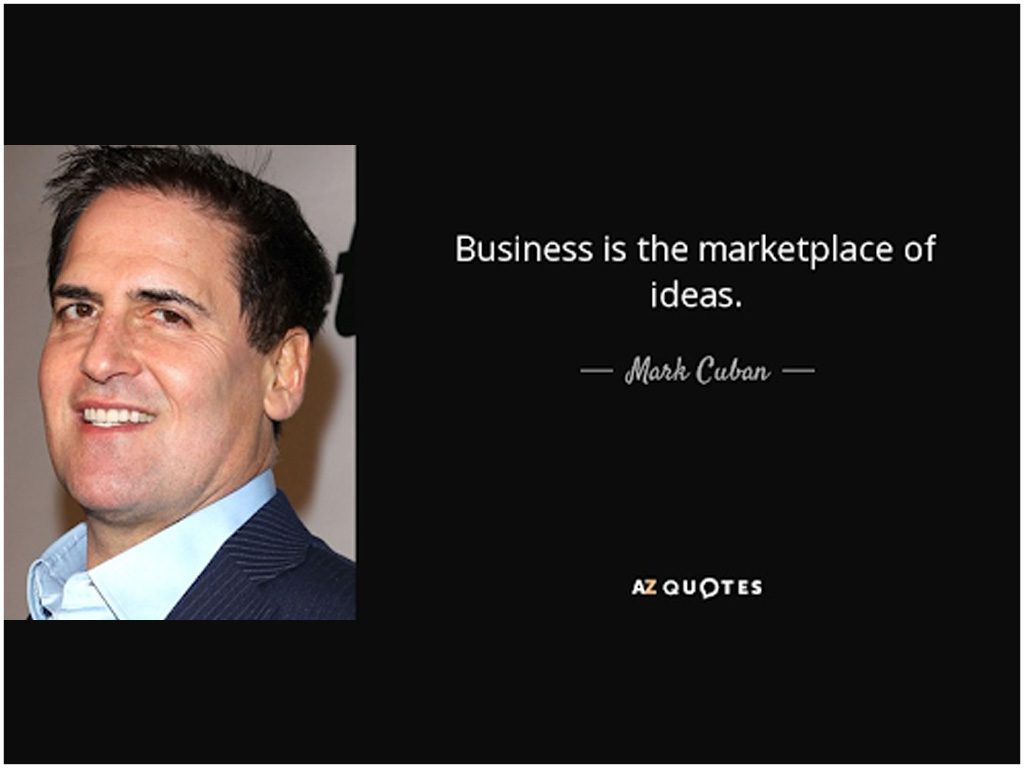Table of Contents
Introduction
With more and more people making purchases online, e-commerce remains dominant in the retail business in 2025. Companies that stay the same with the times will take advantage of a lot of chances to interact with customers who were born and raised online.
Today, the convenience, accessibility, and wide variety of products and services available online make eCommerce website development essential for any business looking to thrive in the digital age.
Although existing platforms such as Shopify and WooCommerce provide easy setups, they don’t always provide the customization options needed to meet a business’s specific needs.
A custom e-commerce development agency provides a tailored solution that not only reflects your brand identity but also incorporates the advanced features and scalability necessary to grow and adapt over time.
E-commerce website development has key aspects, from planning and design to deployment and maintenance. In addition, it will examine current trends and the advantages of employing a dedicated development team to make sure your platform is still competitive in 2025.
Key Features of a Custom eCommerce Website
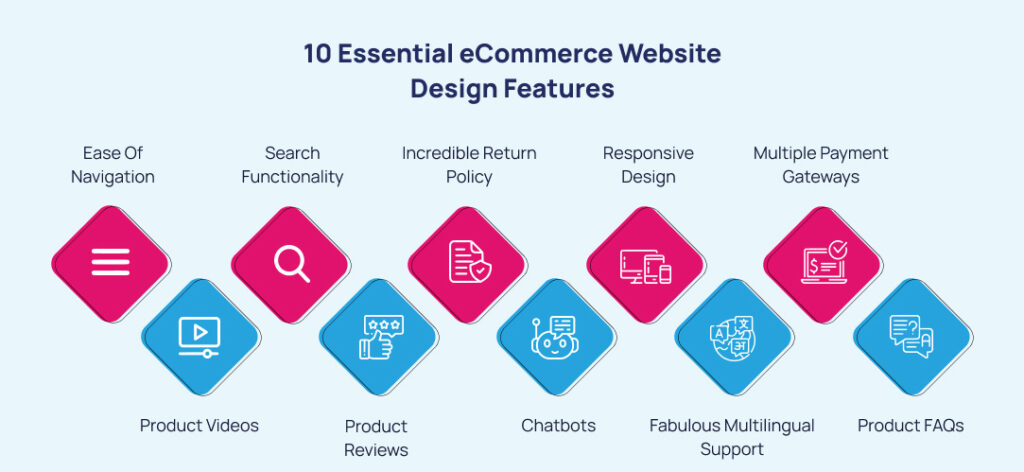
- Custom Design and Branding: A custom site allows for unique design elements that align perfectly with your brand’s identity, setting you apart from competitors.
- Advanced Product Catalog and Management: Robust systems for managing diverse product types, categories, and attributes, with easy scalability as your inventory grows.
- Personalized Shopping Experience: Features like tailored recommendations, wish lists, and customer profiles create a more engaging shopping experience.
- Secure Payment Gateways and Multiple Payment Options: Support for a wide range of payment methods, including credit cards, digital wallets, and cryptocurrencies, with secure encryption to protect customer data.
- Mobile Optimization and Responsiveness: Ensuring your website provides a seamless experience across all devices is crucial, especially as mobile shopping continues to rise.
- Performance and Speed Optimization: Fast load times and smooth performance are essential for both user experience and SEO ranking.
- Security Features: SSL certificates, data encryption, and multi-layered security measures protect sensitive customer and business data.
- Integration with Third-Party Services: Easily integrate with CRMs, ERPs, shipping services, and more to streamline operations.
- SEO-Friendly Architecture: Built-in features that allow for optimized URLs, metadata, and schema markup to help your site rank better in search engines.
Steps Involved in Custom eCommerce Development
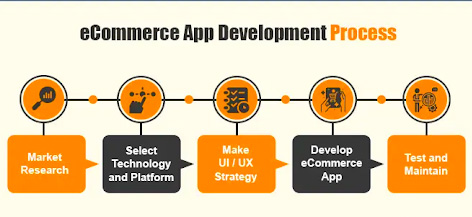
The process typically includes initial consultation, design and development, testing and quality assurance, and ongoing maintenance and support. Each step is crucial in creating a successful online store that meets the unique needs of your business and customers.
Planning and Research
- Identifying Business Needs and Goals: Define the specific outcomes you expect from your custom eCommerce platform.
- Understanding the Target Audience: Research the demographics, preferences, and shopping behaviors of your potential customers.
- Competitor Analysis: Study competitors’ websites to understand their strengths and weaknesses.
- Choosing the Right Technology Stack: Select the appropriate backend and frontend technologies, based on your business needs and future scalability.
Design and Prototyping
- Creating Wireframes and Mockups: Outline the structure and layout of your eCommerce website to visualize the user flow.
- UX/UI Considerations: Ensure that the interface is intuitive, focusing on reducing friction during the customer’s journey from product discovery to checkout.
- Collaboration Between Designers and Developers: Seamless collaboration is essential to ensure the design translates effectively into functional code.
Development
- Backend and Frontend Development: Building a scalable backend for managing data and a responsive frontend for user interaction.
- Database Management and Architecture: Set up a reliable, scalable database to handle product listings, transactions, and customer data.
- API Development and Third-Party Integrations: Ensure seamless communication between your eCommerce platform and external services like payment gateways, shipping providers, and CRMs.
Testing
- Functional Testing: Ensure all features work as intended, from product browsing to checkout.
- Performance Testing: Test the site under different load conditions to ensure speed and reliability.
- Security Testing: Identify vulnerabilities and secure the platform against threats such as data breaches and hacking attempts.
Launch and Deployment
- Hosting and Server Setup: Choose reliable, scalable hosting with CDN (content delivery network) support for faster loading times.
- Data Migration: If transitioning from another platform, ensure data such as product listings, customer profiles, and order history are properly migrated.
- Go-Live Strategies: Plan a smooth launch to minimize downtime and customer disruption.
Choosing the Right Technology for Your Custom eCommerce Platform
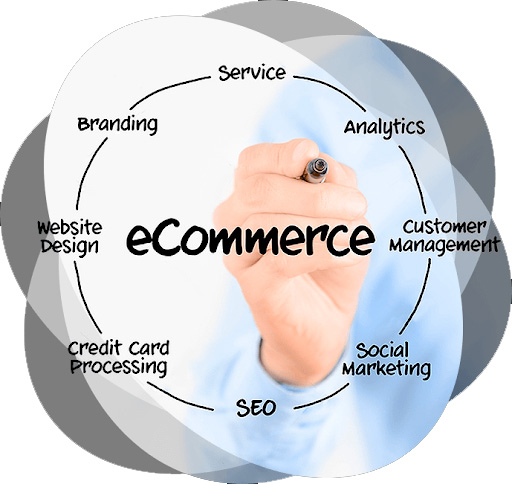
Consider factors such as scalability, customization options, and integration capabilities when selecting the technology stack for your custom eCommerce platform. Additionally, prioritize user experience and mobile responsiveness to cater to a wide range of customers.
- Popular eCommerce Frameworks: Explore leading options such as Magento (flexible and scalable), WooCommerce (for smaller businesses), and Shopify Plus (quick-to-launch and easy to use).
- Framework Comparison: Weigh each platform’s strengths, such as flexibility, scalability, and ease of integration with third-party tools.
- Recommendations for Business Sizes: For enterprise-level businesses, Magento or a headless solution may be ideal, while smaller companies may find WooCommerce sufficient.
- Cost Factors: Consider complexity, feature requirements, design, and the ongoing maintenance costs of a custom solution compared to ready-made platforms.
- Custom vs. Ready-Made Platform Costs: A custom solution will typically involve higher upfront development costs but offer long-term flexibility and scalability. Ready-made platforms may be cheaper initially but can limit future growth.
- Long-Term Costs: Consider ongoing maintenance, hosting, and future upgrades as part of the total cost of ownership.
Need for Hiring a Custom eCommerce Development Team
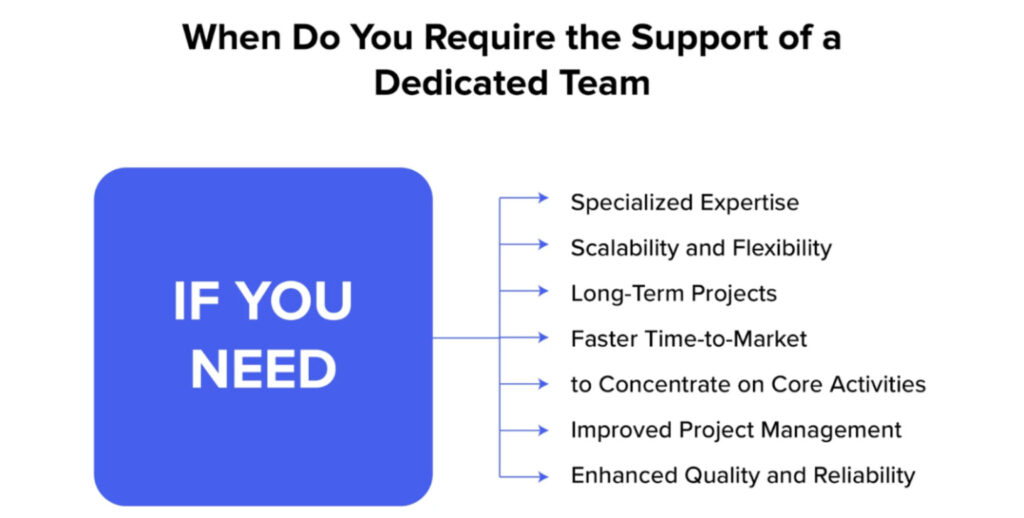
Hiring a custom eCommerce development team may be necessary if your business requires unique features or a highly customized design that cannot be achieved with off-the-shelf solutions. Additionally, having a dedicated team can ensure ongoing support and updates to keep your online store running smoothly.
- In-House Team vs. Outsourcing: In-house development offers greater control but may come with higher costs, while outsourcing can provide access to specialized talent at a lower cost.
- Required Skills: e-commerce website development design, quality assurance testers, and project managers are critical for the successful completion of your e-commerce platform.
- Tips for Choosing the Right Development Partner: Look for experience in building scalable eCommerce sites, industry reputation, and strong client testimonials.
- Ongoing Support and Maintenance: Ensure you have a support plan in place to handle updates, bug fixes, and feature enhancements post-launch.
Current Trends in eCommerce Development for 2025
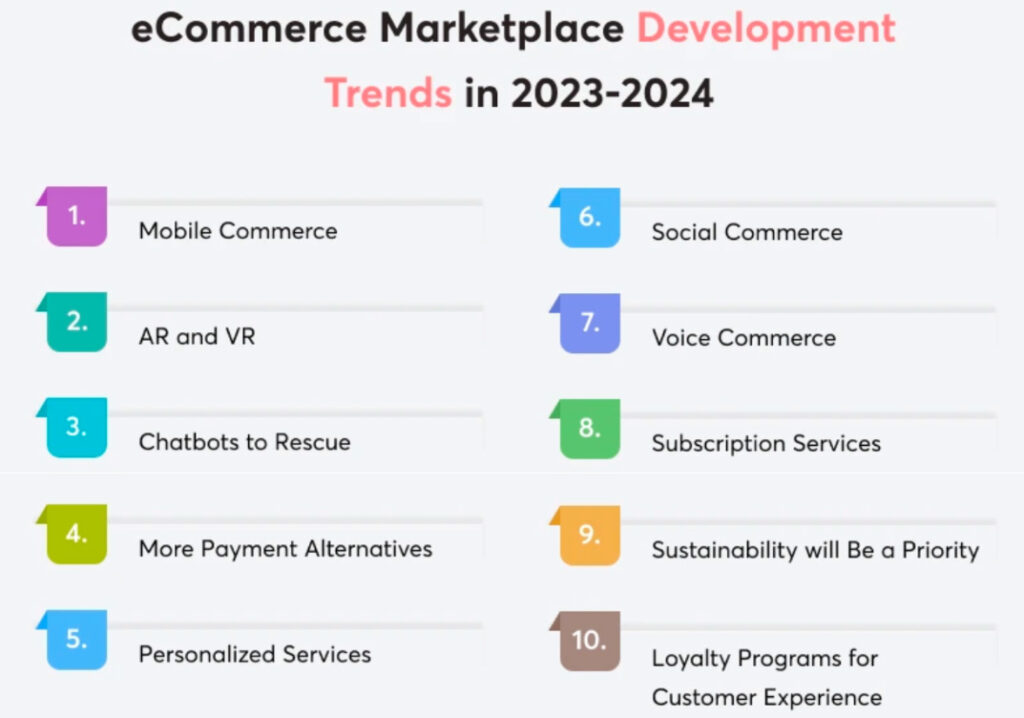
- AI and Machine Learning: Implement AI to offer personalized product recommendations, dynamic pricing, and chatbots for enhanced customer service.
- Voice Search and Voice Commerce: Optimise your platform for voice-based searches as smart speaker adoption grows.
- Headless eCommerce: Separate the front and back end to allow for greater flexibility and customization across multiple channels.
- Progressive Web Apps (PWAs): Combine the best of mobile apps and web experiences, offering fast, reliable, and engaging platforms for users.
- AR and VR Shopping Experiences: Use augmented and virtual reality to allow customers to visualize products before purchasing, improving conversion rates.
- Eco-Friendly Practices: As consumers become more environmentally conscious, adopting sustainable practices in eCommerce can be a significant differentiator.
Conclusion
Custom eCommerce website development allows businesses to build highly tailored, scalable platforms that offer superior user experiences, advanced features, and future-proof technology.
With the continued rise of AR and headless architectures, the future of eCommerce lies in creating highly interactive, personalized, and seamless shopping experiences across all devices and channels.
Investing in a custom eCommerce development company provides long-term value by enabling businesses to stay agile, competitive, and fully aligned with their unique goals and customer expectations in the rapidly evolving digital marketplace of 2025.
Deepak Wadhwani has over 20 years experience in software/wireless technologies. He has worked with Fortune 500 companies including Intuit, ESRI, Qualcomm, Sprint, Verizon, Vodafone, Nortel, Microsoft and Oracle in over 60 countries. Deepak has worked on Internet marketing projects in San Diego, Los Angeles, Orange Country, Denver, Nashville, Kansas City, New York, San Francisco and Huntsville. Deepak has been a founder of technology Startups for one of the first Cityguides, yellow pages online and web based enterprise solutions. He is an internet marketing and technology expert & co-founder for a San Diego Internet marketing company.

